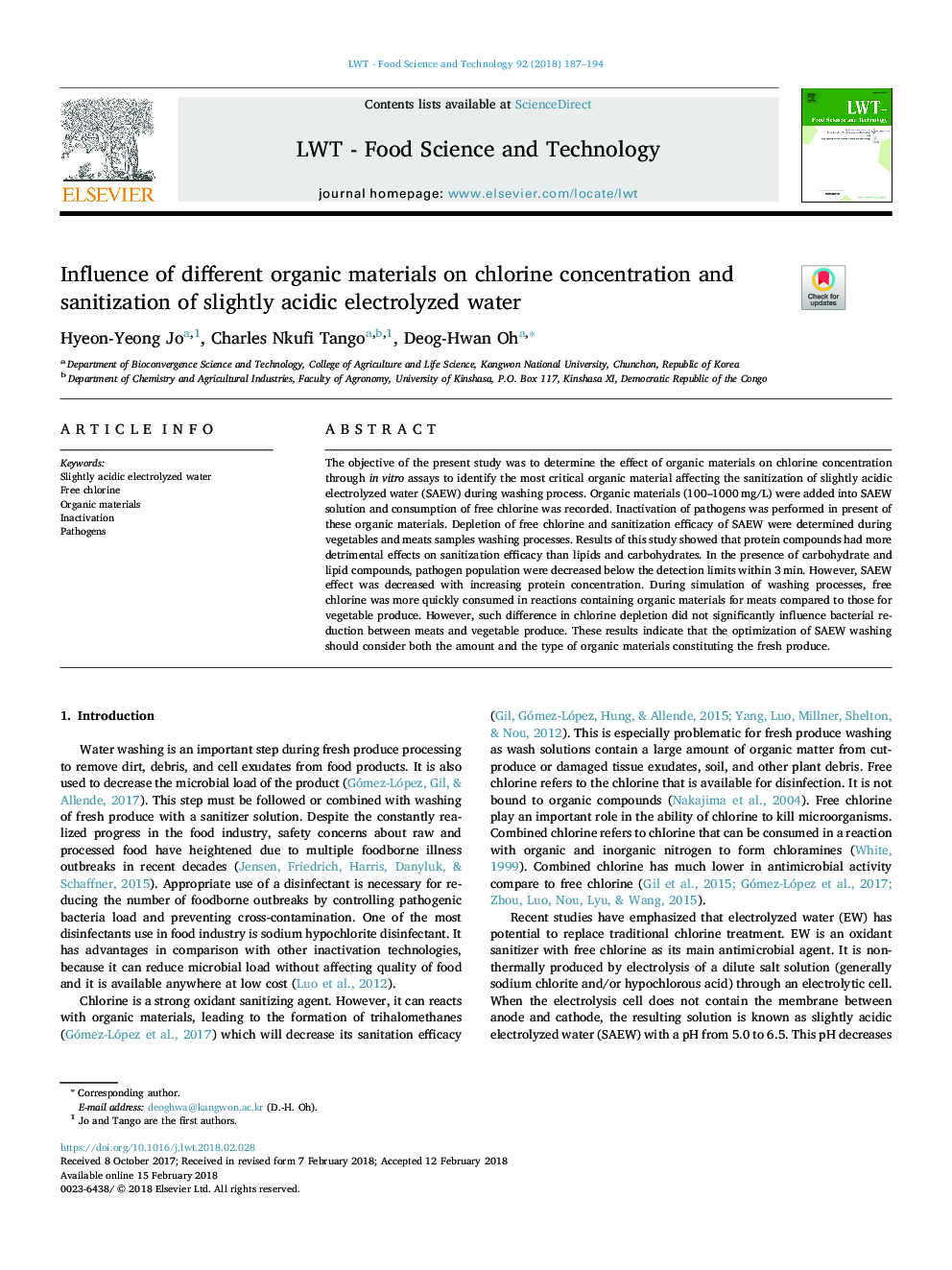| Article ID | Journal | Published Year | Pages | File Type |
|---|---|---|---|---|
| 8891237 | LWT - Food Science and Technology | 2018 | 8 Pages |
Abstract
The objective of the present study was to determine the effect of organic materials on chlorine concentration through in vitro assays to identify the most critical organic material affecting the sanitization of slightly acidic electrolyzed water (SAEW) during washing process. Organic materials (100-1000â¯mg/L) were added into SAEW solution and consumption of free chlorine was recorded. Inactivation of pathogens was performed in present of these organic materials. Depletion of free chlorine and sanitization efficacy of SAEW were determined during vegetables and meats samples washing processes. Results of this study showed that protein compounds had more detrimental effects on sanitization efficacy than lipids and carbohydrates. In the presence of carbohydrate and lipid compounds, pathogen population were decreased below the detection limits within 3â¯min. However, SAEW effect was decreased with increasing protein concentration. During simulation of washing processes, free chlorine was more quickly consumed in reactions containing organic materials for meats compared to those for vegetable produce. However, such difference in chlorine depletion did not significantly influence bacterial reduction between meats and vegetable produce. These results indicate that the optimization of SAEW washing should consider both the amount and the type of organic materials constituting the fresh produce.
Related Topics
Life Sciences
Agricultural and Biological Sciences
Food Science
Authors
Hyeon-Yeong Jo, Charles Nkufi Tango, Deog-Hwan Oh,
